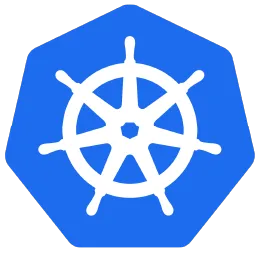Kubernetes Developer Learning Path
The Kubernetes Developer Learning Path aims to equip individuals with the skills needed to become proficient Kubernetes developers. This learning path offers a comprehensive journey, providing a solid foundation in Linux, containerization, Kubernetes administration, CI/CD, and GitOps deployments.

How long will it take for me to complete?
What day-to-day looks like
- Designing and Implementing Kubernetes Clusters
- Developing Helm Charts
- Building and Maintaining CI/CD Pipelines
- Scripting Infrastructure as Code (IaC)
- Containerization and Orchestration
- Monitoring and Logging
- Security Implementation
- Performance Tuning and Optimization
- Database Management
- Troubleshooting and Support
- Knowledge Sharing and Documentation
- Continuous Learning and Improvement
Kubernetes Developer
Test your Readiness for Free!
Topic based learning paths
Role based learning paths
FAQs
What is the role of a Kubernetes Developer?
A Kubernetes Developer is responsible for developing, deploying, and managing applications on Kubernetes clusters. They focus on containerization, designing application architectures for Kubernetes, creating Kubernetes manifests, and optimizing application performance within Kubernetes environments.
What skills and knowledge are required to become a Kubernetes Developer?
To become a Kubernetes Developer, you should have a strong understanding of containerization concepts, proficiency in Docker, knowledge of Kubernetes architecture and components, experience with Kubernetes deployment manifests (e.g., YAML), familiarity with container orchestration and scaling concepts, and the ability to troubleshoot issues related to application deployments on Kubernetes.
What certifications are available for Kubernetes Developers?
The Certified Kubernetes Application Developer (CKAD) certification is a popular certification for Kubernetes Developers. It validates your knowledge and skills in designing, building, configuring, and exposing cloud-native applications for Kubernetes. This certification demonstrates your proficiency in working with Kubernetes and developing applications that run effectively on Kubernetes clusters.
How can I prepare for the CKAD certification exam?
To prepare for the CKAD certification exam, it is recommended to gain hands-on experience with Kubernetes by working on real-world projects or using practice environments. Familiarize yourself with Kubernetes concepts, YAML manifests, Pod and Deployment configurations, service and networking concepts, and troubleshooting techniques. Practice solving practical exercises and mock exams to improve your speed and accuracy in completing tasks within the given time limit.
What are some common challenges faced by Kubernetes Developers?
Kubernetes Developers often face challenges related to creating efficient containerized applications, designing scalable architectures, optimizing resource utilization, managing application deployments, troubleshooting issues related to application performance and networking, and ensuring compatibility with different Kubernetes versions. It is important to stay updated with Kubernetes best practices, adopt cloud-native patterns, and leverage Kubernetes features effectively.
How does Kubernetes facilitate continuous integration and deployment (CI/CD) for applications?
Kubernetes provides various features and integrations that enable CI/CD workflows. With Kubernetes, you can define deployment manifests, utilize rolling updates for seamless application updates, leverage container registries for storing and versioning container images, and integrate with CI/CD tools like Jenkins or GitLab CI/CD for automated build, test, and deployment processes. Kubernetes also allows you to scale and manage application replicas to ensure high availability during continuous deployment.
What is the role of Kubernetes Operators in application development?
Kubernetes Operators are software extensions that automate the management of complex applications on Kubernetes. They encapsulate application-specific knowledge and operational tasks, allowing developers to define custom resources, create controllers, and automate the lifecycle management of their applications. Kubernetes Operators simplify the deployment and management of stateful applications by automating tasks such as scaling, backup, restore, and upgrades.
How important is containerization knowledge for a Kubernetes Developer?
Containerization knowledge is essential for a Kubernetes Developer as Kubernetes itself is a container orchestration platform. Understanding containerization concepts, Docker, container images, and container runtime environments is crucial for packaging and deploying applications on Kubernetes. It enables developers to create portable, isolated, and scalable application environments that can be easily managed and deployed on Kubernetes clusters.

.svg)





.svg)


.webp)
.svg)
.webp)





.svg)






